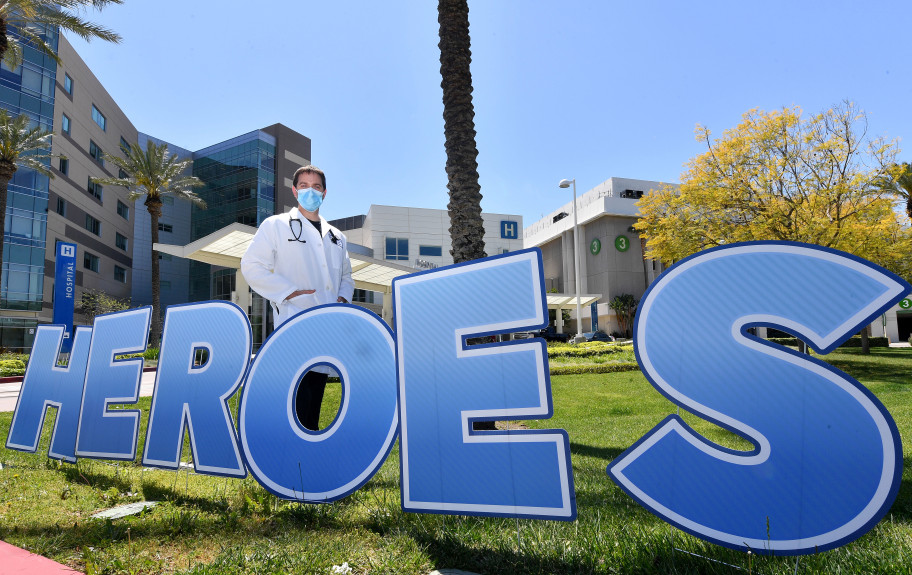Mission Statement

Follow Us
Recent News
Chapman Global Medical Center Launches Emergency Services Committee, Holds Inaugural Meeting with Stakeholders
ORANGE, Calif., July 28, 2023 (GLOBE NEWSWIRE) — Chapman Global Medical Center (“CGMC”), a KPC
Contact Us
- May 12, 2020
- 9:14 pm
These 10 Inland Empire medical workers are on front lines of coronavirus fight – The Press-Enterprise

At Inland Empire hospitals, the struggle against the novel coronavirus pandemic is up close and personal. Doctors, nurses, medical assistants, cleaning staff, engineers retrofitting facilities to hold the virus in patients’ rooms and more are working to stop a disease that’s already killed more than 74,000 people in the United States. As the coronavirus pandemic began in the United States, nurse Lauren Baca guessed her floor of Hemet Global Medical Center would end up being the COVID-19 quarantine floor. Hospital workers spent a day converting the floor. Each room got its own antechamber to allow staff to put on or remove protective gear while treating COVID-19 patients. And the new ventilation system is loud. “We do have to sort of yell at the patients so they can hear at us and they have to yell at us back,” said Baca, 33. Like many in her field, the San Jacinto resident hopes the public stays the course with social distancing and other measures to slow the coronavirus’s spread. “I know it sucks. Believe me, I’m one of these people who would love to go and get a haircut. I’m about to cut it off myself,” Baca said. “In New York, they literally can’t give people the care they want to, because they’re so overwhelmed. I don’t want us to get to that point.” Menifee resident Dr. John Carvalho avoids leaving his house, other than going to work on the COVID-19 quarantine floor at Hemet Global Medical Center. “We’ve all had to adapt to being a thousand times more conscious about what kind of environment we’re in, what condition our gowns are in, how we’re taking them on and off,” said Carvalho, 34, one of the resident physicians on the floor. “It almost becomes a caricature of how we were trained.” He wears N95 respirator masks, along with goggles, a plastic face shield, a surgical cap and waterproof shoes. Despite all that, Carvalho limits how much time he spends in public, even when getting groceries or meals. “I can’t ever know fully how much I would be exposing other people,” he said. “We try to make one trip a week or less, order things ahead of time to just pick up or just get it delivered.”





 Hemet Global Medical Center provides a full range of inpatient and outpatient cardiology care services, including a Cardiac Catheterization Laboratory. Comprehensive care includes a thorough assessment, diagnosis, treatment plan, and intervention, in addition to continued evaluation to ensure progress is on track. This process often begins with non-invasive testing.
Hemet Global Medical Center provides a full range of inpatient and outpatient cardiology care services, including a Cardiac Catheterization Laboratory. Comprehensive care includes a thorough assessment, diagnosis, treatment plan, and intervention, in addition to continued evaluation to ensure progress is on track. This process often begins with non-invasive testing.







